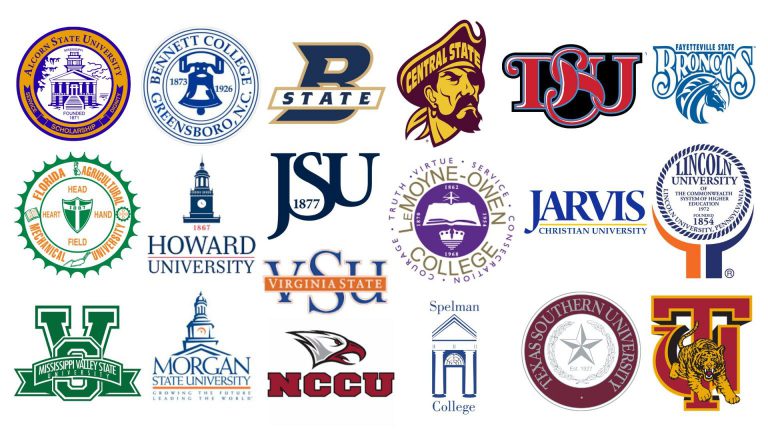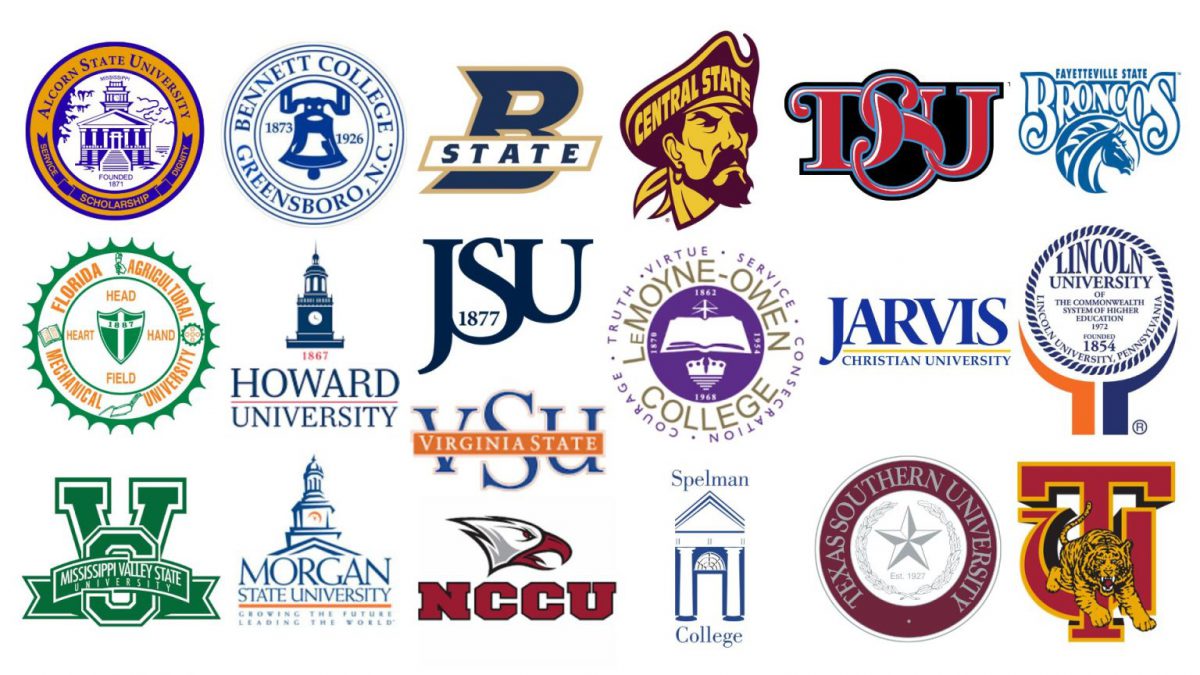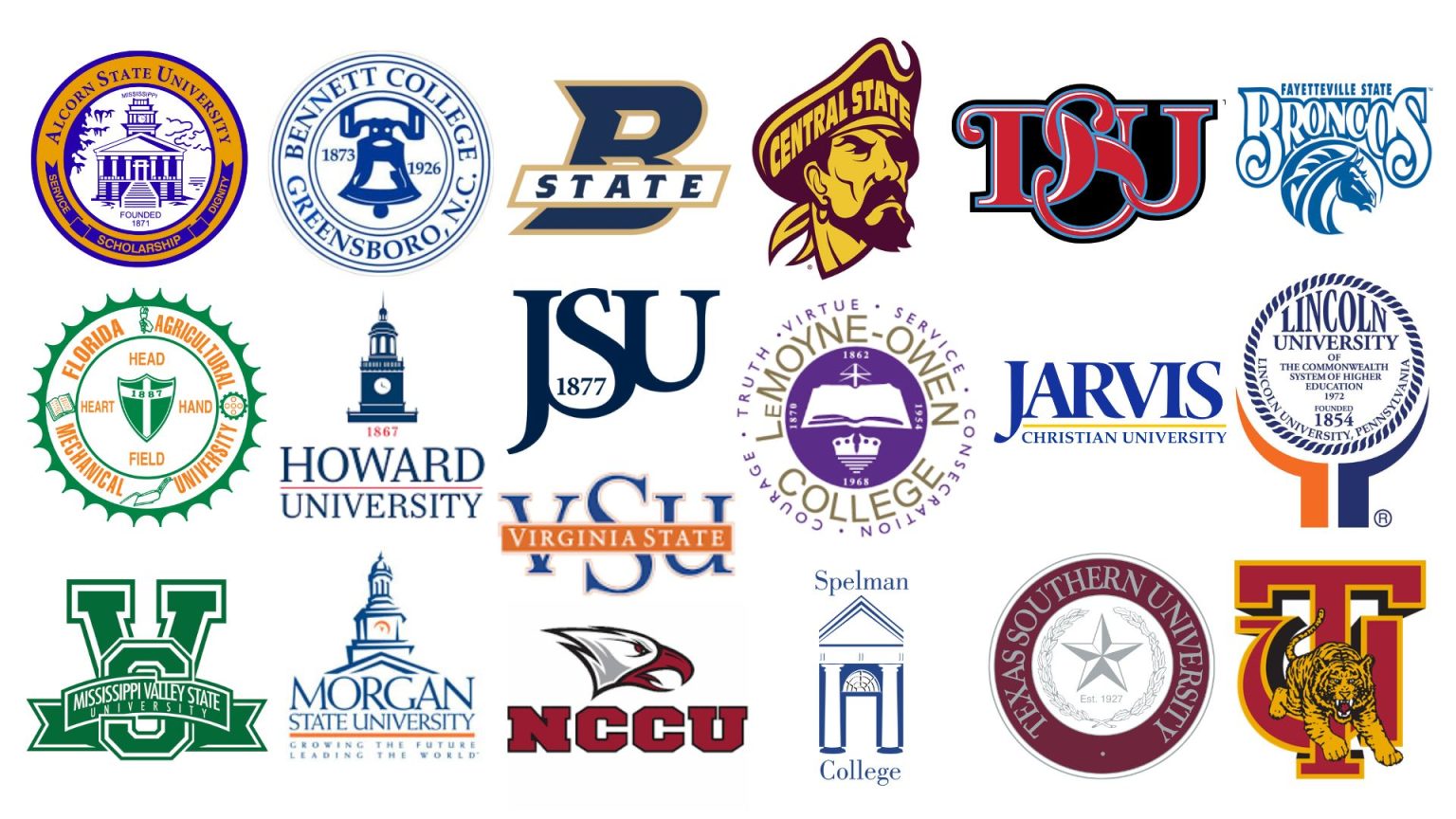Every five years, Congress is meant to reauthorize what is colloquially called the farm bill — a colossal spending package dealing with food and agriculture. In addition to provisions related to federal nutrition benefits, crop insurance and wool production, the bill is a significant source of funding for land-grant universities.
“What people don’t realize is that while the farm bill is really heavily focused on providing support for feeding this nation, it is also critically providing funding for some of the largest universities across the country,” said Denise Smith, senior fellow at The Century Foundation, a left-leaning think tank.
That includes a group of 19 historically Black colleges and universities, often called the 1890 institutions after the law that led to their creation.
Today, these institutions serve more than 117,000 students. Three-quarters of their students are Black and 57% receive Pell Grants, according to a recent report from Smith. These institutions, Smith argued, make significant research contributions to the nation, educate underrepresented students and generate $5.5 billion in annual economic impact.
But the 1890 institutions have dealt with chronic underfunding compared to predominantly White land-grant institutions. Advocates are hoping the upcoming farm bill may begin to rectify some of the funding inequalities.
“When you look at the White land-grant universities — Rutgers University, the University of Massachusetts Amherst, the University of Tennessee, the Clemson universities of the world — they are vastly well-funded and better positioned than the Black land-grant universities in this nation,” Smith said.
Why are 1890 institutions underfunded?
In 1862, Congress established the original 57 land-grant institutions, which focused on agriculture and mechanics. But those original institutions excluded Black students. In 1890, Congress passed legislation aiming to give similar educational opportunities to Black students, giving rise to the land-grant colleges that exist today.
But they’ve been underfunded from the start.
The original 1862 land-grant institutions received perpetual funding for their “endowment, maintenance and support” that historically Black institutions never got. Today, the 1862 institutions located in the same states as the 1890 institutions have average endowment assets per student more than six times higher than their HBCU counterparts, Smith found in her analysis.
Moreover, per-student research expenditures at the 1890 colleges are less than one-third of those at the 1862 land-grant institutions, where, on average, only 6% of the student body is Black.
Part of the issue is the way 1890 institutions are funded. Nineteenth-century lawmakers created a formula to provide routine research funding for predominantly White land-grant institutions. But the HBCU land-grants didn’t receive these types of payments until 80 years later, in the 1960s.
Today, the federal government must give research payments to the HBCU land-grant universities totaling at least 30% of what it authorizes for the original land-grant institutions.
The universities must match the federal funds, which is typically done with state money. But the 1890 institutions can request a waiver for this requirement for up to 50% of the funds if they cannot secure a match.
While that arrangement allows 1890 institutions to keep their federal funds, advocates say it lets state governments off the hook from fully funding their historically Black land-grant institutions.
Up to half of legislatures each year deny full matches of the federal funds for their 1890 institutions, according to a report from the Center for American Progress, a liberal think tank. In the past five years, the value of those missed funds has totaled around $90 million.
In 2022, for example, Florida declined to match $2.2 million in federal funds for its historically Black land-grant institution, Florida Agricultural and Mechanical University, forcing the institution to request a special waiver. The same year, Florida provided a 14-to-1 match of state-to-federal funds for the University of Florida, an 1862 land-grant.
“1890s do amazing work. They are often located in more underserved communities. They serve small and limited resource farmers. They do nutrition education” said Sara Partridge, a senior policy analyst at Center for American Progress and author of the report. “There is a lot of bipartisan support for HBCUs, and Congress should put those words into action.”
What do advocates want from the farm bill?
The 2023 farm bill has the power to rectify some of the existing inequities.
Some advocates have called on Congress to increase the funding 1890 universities must receive compared to their predominantly White counterparts. The 1890 Universities Foundation and the Association of 1890 Research Directors, for instance, have both called for the HBCUs to get at least 40% of what is authorized for 1862 land-grant universities.
“Of course a higher percentage would be more desirable, but 40% would at least get us down the road in terms of equity,” said Alton Thompson, executive director of the Association of 1890 Research Directors. The group is also seeking approval to use research funds to waive tuition and fees for graduate students.
The issue of waiving the state-to-federal funding match is also salient for advocates, who have tried to find ways to compel states to fully match federal funds for 1890 institutions.
Smith has proposed phasing out the waiver altogether. In the meantime, she proposes shifting the burden to the state governor —rather than the institution — for requesting the waiver from the federal government. The Association of 1890 Research Directors also supports this strategy.
“It’s important for us to phase out the waiver to be able to make sure the legislature or the governor is accountable, or some other entity is encouraged to be able to provide this waiver,” Smith said.
Partridge, from the Center for American Progress, proposed requiring that 1890 institutions and their same-state 1862 counterparts certify jointly that they received matching funds, apply jointly for waivers, and share proportionally in the loss of the waived funding amount.
“1890 and 1862 institutions already do a lot of collaborative work,” she said. “It would be a way to increase transparency within the state university system about the resource challenges of 1890 institutions and would incentivize a more equitable distribution of resources between the two,” Partridge said.
Advocates have also sought reauthorizations of millions of dollars in scholarship, capacity and infrastructure funding, as well as expansion of the 1890 Centers of Excellence, which focus on activities like research and teaching programs. Smith has recommended a new mandatory funding stream of $600 million over five years for 1890 institutions to make up for past inequities.
The 1890 Universities Foundation, joined by the Association of 1890 Research Directors, has also asked Congress for funding to sustain the foundation, to the tune of $5 million per year. The foundation helps the 1890 universities collaborate and awards grants to them.
“This is not your typical ask, but we believe there is a precedent,” said Mortimer Neufville, president and CEO of the 1890 Universities Foundation.
The Foundation for Food and Agriculture Research, for instance, is a public-private partnership established and funded by Congress in the 2014 version of the farm bill.
“We believe we are in a similar role and really providing capacity building for the foundation would be really significant,” Neufville said.
What can be expected from Congress?
The current iteration of the farm bill expires Sept. 30. If Congress can’t authorize an update by then, members will need to extend the previous bill to avoid a lapse in funding.
Roll Call reported in July that the House and Senate Agriculture committees have begun drafting their bills. But full drafts aren’t expected until September, giving the chambers little time to strike a deal.
Smith and other advocates, some of whom have been meeting with committee members, have said they are optimistic about the process. Much of the acrimony accompanying the farm bill probably concerns other provisions, like the Supplemental Nutrition Assistance Program and other benefits programs, or funding for conservation and climate efforts.
The debt ceiling deal worked out between the White House and congressional Republicans added work requirements to SNAP but is unlikely to affect the funding for historically Black land-grant institutions.
Neufville, of the 1890 Universities Foundation, said he expects positive things from the authorization process. But even after that is done, work isn’t complete.
“For me where the issue comes, will appropriations match the authorization? And that’s where we’re struggling,” he said.
For example, after the 2018 farm bill, Neufville said it took three years for the Centers of Excellence to begin receiving the amount Congress authorized for them.
“Going back to the old adage, doing more with less, we have been living that for the past century and we continue to live that,” Neufville said. “We do hope that someday we can say, ‘Oh, we’ve finally arrived.’”



























